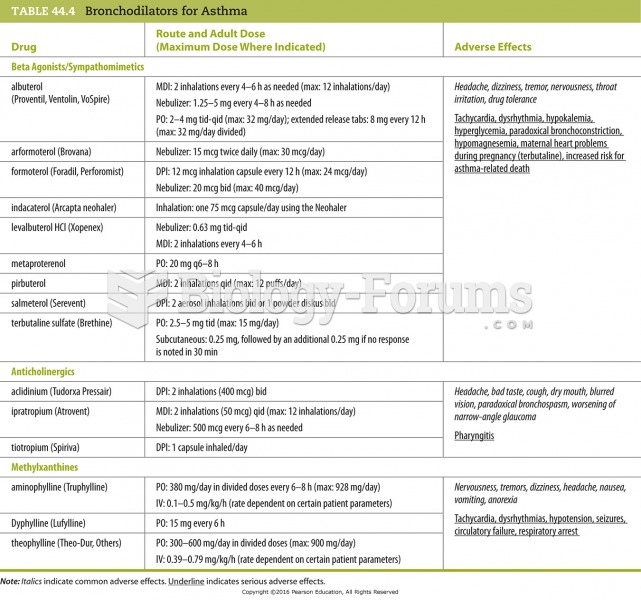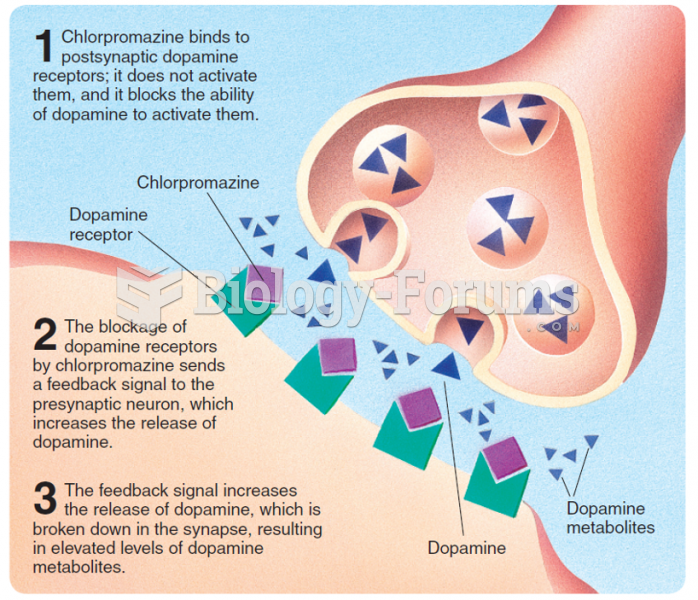Answer to Question 1
3
Rationale 1:Elevated blood pressure is incorrect because only three beta blockers have been approved for dysrhythmias because of their side effects, which include hypotension; bradycardia, leading to dizziness; and fainting. The client with asthma, however, will be more prone to bronchospasm, since the beta blockers will affect the lungs.
Rationale 2: Dizziness and fainting are associated with a low blood pressure. The client has asthma and is more at risk for a bronchospasm.
Rationale 3: Only three beta blockers have been approved for dysrhythmias because of their side effects, which include hypotension; bradycardia, leading to dizziness; and fainting. The client with asthma, however, will be more prone to bronchospasm, since the beta blockers will affect the lungs.
Rationale 4:The client with asthma, however, will be more prone to bronchospasm, since the beta blockers will affect the lungs. Bradycardia is incorrect because only three beta blockers have been approved for dysrhythmias because of their side effects, which include hypotension; bradycardia, leading to dizziness; and fainting.
Global Rationale: Only three beta blockers have been approved for dysrhythmias because of their side effects, which include hypotension; bradycardia, leading to dizziness; and fainting. Beta blockers that affect beta 2 receptors will also affect the lungs, increasing the risk for bronchospasm. The client with asthma, however, will be more prone to bronchospasm, since the beta blockers will affect the lungs.
Answer to Question 2
3
Rationale 1: ICDs are used as nonpharmacological interventions for treatment of dysrhythmias.
Rationale 2: Side effects will vary, including headache, constipation, hypotension, and bradycardia.
Rationale 3: Only a limited number of calcium channel blockers have been approved for dysrhythmias, and they are only effective against atrial dysrhythmias.
Rationale 4: The response time would be quick with any pharmacological treatment.
Global Rationale: Only a limited number of calcium channel blockers have been approved for dysrhythmias, and they are only effective against atrial dysrhythmias. ICDs are used as nonpharmacological interventions for treatment of dysrhythmias. Side effects for CCBs will vary, including headache, constipation, hypotension, and bradycardia. The response time would be quick with any pharmacological treatment.







